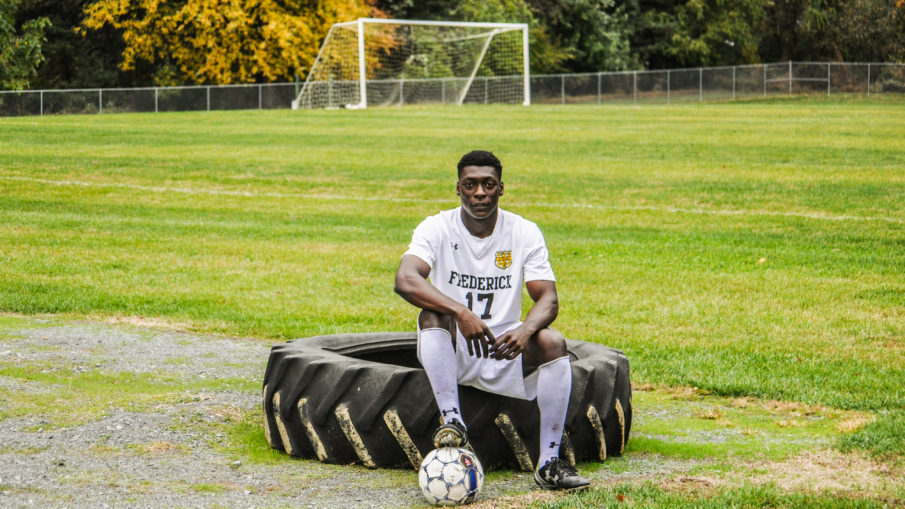The pensive but eager teenager peered out the tiny airplane window, watching everything he ever knew vanish beneath the clouds. For the first five minutes, Bilal Hassane Souley’s upbringing — all 18 years of it — flashed before his eyes as he flew out of Diori Hamani International Airport of Niamey, Niger.
Hassane Souley arrived in Paris, France, a few hours later, a midway stop before he set out for America. In total, a 14-hour plane ride was the only thing that separated him from a childhood dream of pursuing greater opportunities in soccer, and little did he know what would soon come to pass: Leading Frederick Community College men’s soccer to its most decorated season in the college’s history this past fall.
Before his American soccer career began, and after his plane landed, Hassane Souley meandered through the customs of Baltimore Washington International Airport, searching for his older sister awaiting his arrival. Hassane’s Souley sister, Ramatou Issaka, 34, came to the United States in 2005 and settled in Frederick.
When he turned the corner, he saw his seemingly long-lost sibling run toward him. They recognized each other instantly, hugged for a good minute, laughed and carried on a long conversation.
Loading his luggage into the trunk of his sister’s car, Hassane Souley had no time to waste. There was a dream to fulfill.
“It was my time to go for my goals,” Hassane Souley said. “I asked myself, ‘Why not?’”
Love at first sight
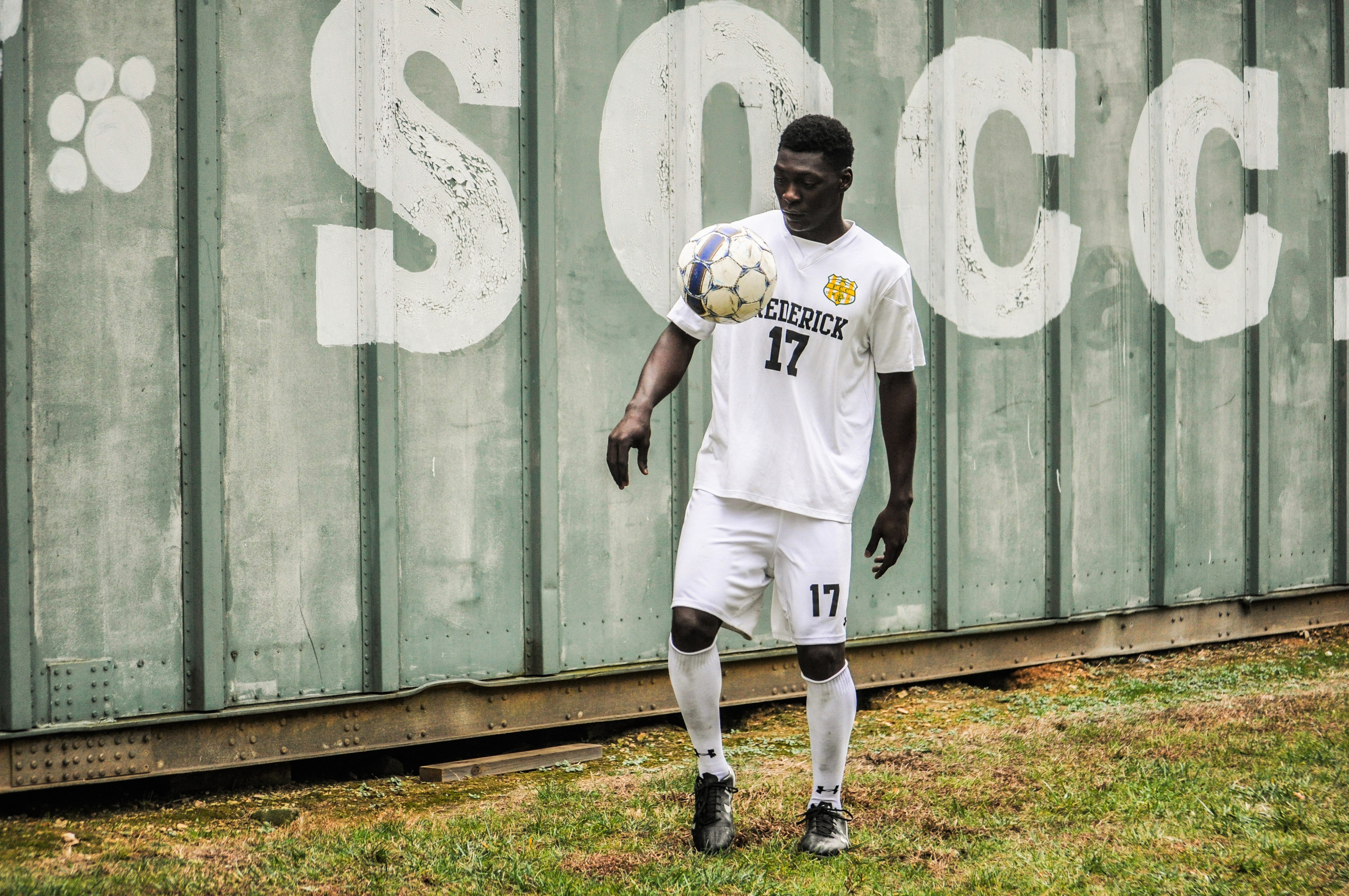
It all started with one question. The younger, curious Hassane Souley, 6, awoke one morning and “randomly” asked his mother to buy him a soccer ball, he says.
Though his father, Leyni Hassane Souley, played for Niger’s national soccer team, Bilal Hassane Souley can’t figure out what prompted the question at such an early age.
“I don’t know, really,” he said. “Something just came into your mind. Maybe it’s destiny. I don’t know.”
The seeds of a dream were planted in that singular moment. His father, Leyni, never pushed Bilal down the path that led him to soccer superstardom as a defensive back. But when he saw his son instantly fall in love with the game that ran rampant in Niger, Leyni shepherded his son along.
Bilal Hassane Souley was too young at the time to even think about competitive soccer, or expectations for the future. He was just happy he could fit in the neighborhood and pass the days along with his new-found love.
“It was fun, just to kick the ball, running around trying to get the ball,” Hassane Souley said.
After two years of playfully fiddling around, Hassane Souley started to participate in neighborhood soccer tournaments. Still new to the game, he carried forward. Even if it meant playing against kids who were one to three years old than him, and had double or triple the soccer experience he had.
The daring move by the naïve Hassane Souley, now 8-years-old generated the beginnings of the player he transformed into — an undaunted, hard-nosed defender with a persistent motor.
“I played with guys older than me, bigger than me, more physical than me,” Hassane Souley said. “That really helped me to get physical.”
After a few years had passed, and with a refined soccer skill-set, Hassane Souley, 12, was accepted into SACA Sports Academy, one of the first athletic academies in Africa that offered superlative soccer training along with a middle and high school team.
“It’s really important,” Hassane Souley said of the SACA Sports Academy. “A lot of people tryout. It’s really competitive.”
Hassane Souley spent six and a half years there, polishing raw athletic gifts while enhancing his soccer IQ before he got a call from his sister, Ramatou, saying his Green Card application was processed. This meant a new life awaited an ocean away, but also meant it was time to say a bittersweet goodbye.
“It was kind of tough,” Hassane Souley said of his goodbye to his mom and dad, who stayed in Niger. “You realize this is life, and you’re not going to last in the same place. It’s a new opportunity for me, a new life.”
Embracing the new challenge
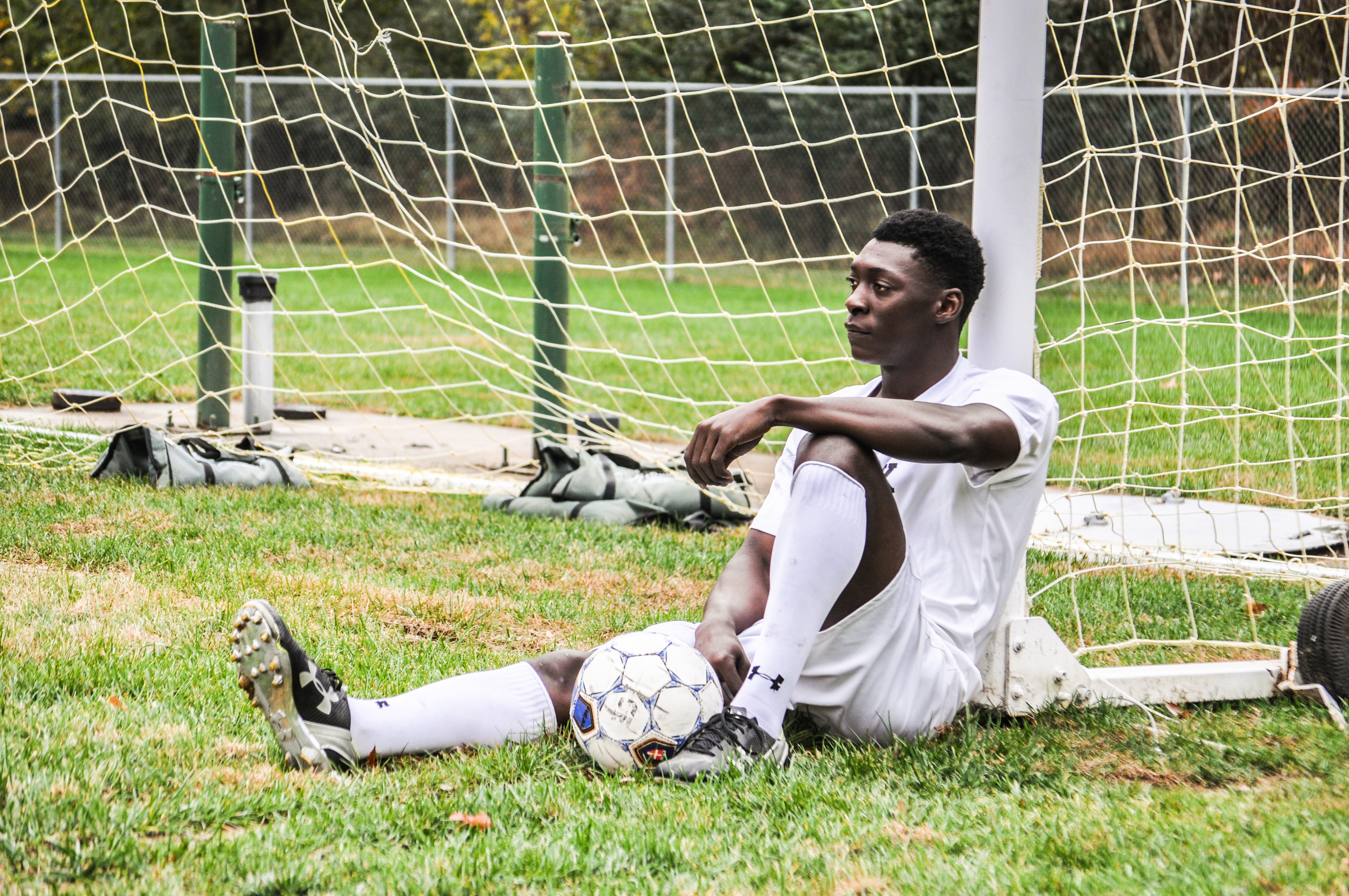
Before Hassane Souley boarded a flight halfway around the world to set out for what he called a “new challenge,” he had to squeeze three years of high school in just under two years, or else he would be an unideal year behind. If there were any indication on how life would go in America, Bilal had passed his first test.
“If he wants something, he will do whatever it takes to get it,” Issaka, Bilal’s sister, said. “I always told him, if you want to come (to America), you have to work hard and get your GED. He did three years of work in two years. That’s what impressed me.”
The Hassane Souley family knew there was no other country like America when it came to freedom and opportunities, and departing from Niger was an easy decision.
In 2005, Issaka came to America with her husband and currently resides with her 7 and 13-year old children near Fort Detrick. She graduated from FCC a few years ago, earning her associate’s degree before transferring to Mount St. Mary’s to earn her master’s in accounting. Going to school and getting a job is “not necessarily the situation back at home,” she says.
“You get a better opportunity (in America),” Isaaka said, who currently works for a non-profit organization in Frederick. “That’s why we came here.”
Other than a roof over his head, food on the table, clothes on his back and the opportunity that awaited, Hassane Souley had nothing else. He barely knew a smidgen of English, making life the first few months extremely difficult.
A couple days after Hassane Souley settled into his sister’s house in September 2014, he went on her computer to search for nearby colleges that offered a soccer program. His sister had suggested The University of Maryland, since she saw it had a premier men’s soccer team.
Hassane Souley was instantly intrigued and jotted the coach’s number down on a piece of paper, but continued to search. He then came across FCC, and wrote Rich Roby’s number — the men’s soccer coach until 2015 — on the piece of paper next to UMD’s contact information. Hassane Souley stopped his search there, and decided to call UMD to inquire about a soccer tryout.
What he didn’t know was that he had the two numbers backwards. The voice over the phone told Hassane Souley to come to the Frederick Indoor Sports Complex for a tryout that night at 7:30, and he accepted, thinking he was going to UMD.
“When I finished talking, I was like, ‘Oh, this guy is in Frederick, but I’m looking for the University of Maryland coach,’” Hassane Souley said, looking back and realizing the number he called was FCC. “And I was like, ‘Is this what usually happens?’ I told (my sister) I had (the tryout) at 7:30 pm at FISC. And she said if it was Maryland, it had to be down the road. I was like, ‘Uh oh.’”
Hassane Souley went anyway. Not even 10 minutes into the tryout, Roby, the former FCC soccer coach, and John LaRocca, who was an assistant at the time, but is now the head coach, offered Hassane Souley a spot on the team. At that moment, the thought of even playing for UMD was obscured by his first American soccer opportunity.
He couldn’t pass it up.
“I just went for it,” Hassane Souley said. “I took that first offer, because that’s all I thought about. Getting that first opportunity. … That’s where it started.”
‘He was the best player I saw all year’
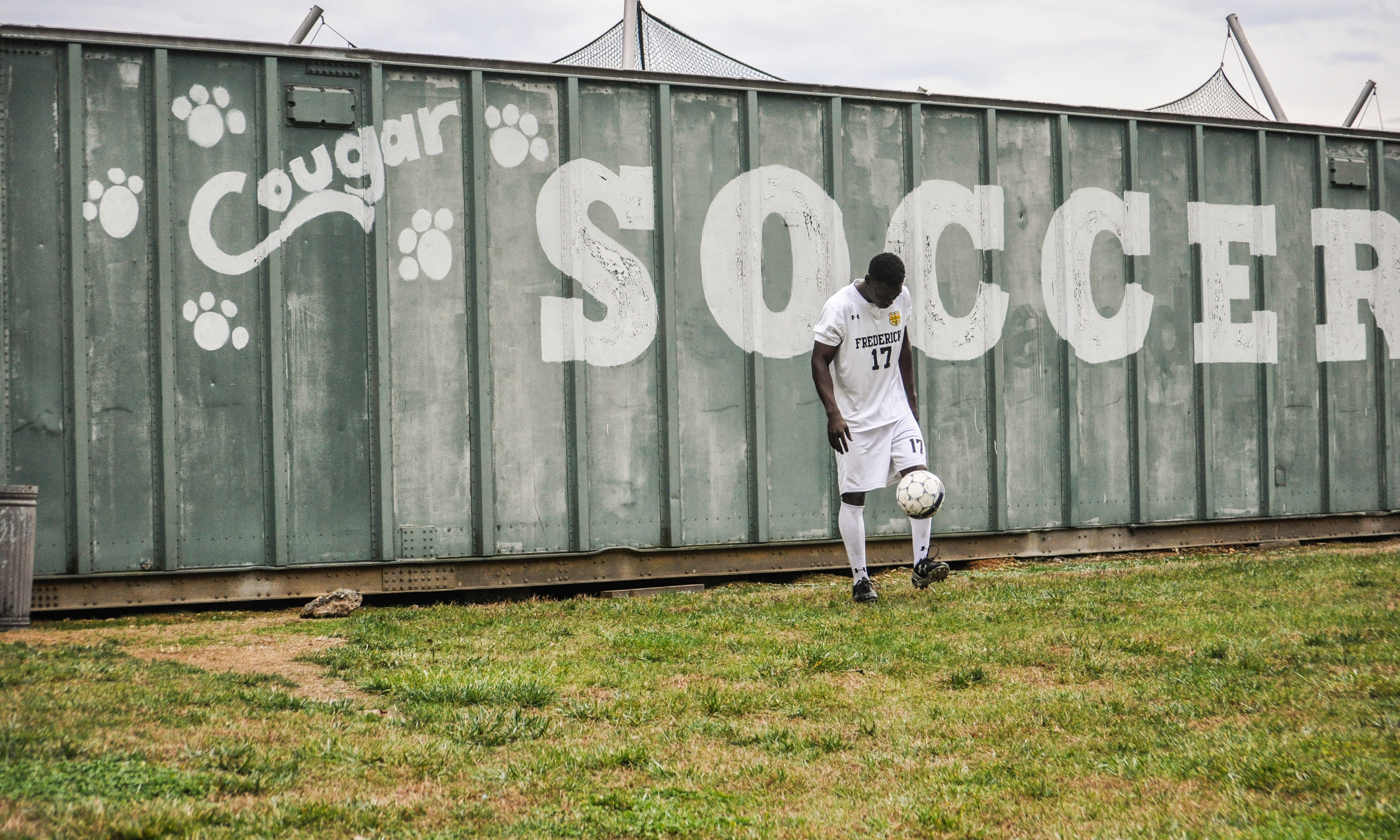
LaRocca and the coaching staff at FCC took Hassane Souley under their wing from the onset and gradually polished the raw athletic ability he possessed.
Hassane Souley received a considerable chunk of playing time in his first year of American soccer, but was still a long way from reaching his potential.
He practiced two to three times a day for countless hours a week during the offseason workout schedule. Hassane Souley never complained. It was “what (he) came here for.”
The reckless and raw brand of soccer was transformed into a more fundamentally sound, swifter presence in the back. Hassane Souley spearheaded a defense that ranked first in goals allowed per game (1.09) and charged FCC to a 12-game win-streak in which they produced five shutouts over that span.
His efforts helped lead FCC to a 14-4-1 record, the best in the college’s history, and a share of the Maryland Junior Athletic Conference title, the first men’s soccer conference championship ever.
“He was huge,” LaRocca said of Hassane Souley. “In my opinion, he was the best player I saw all year. When he was off the field you could tell. I want to know how many goals allowed from our team was when he was on the bench. Because I think it’s the majority of it.”
Though he tallied two goals and six assists in 16 games, the defensive tactics Hassane Souley uses to harass opponents don’t appear in the stat book. His efforts earned him Most Valuable Player for the FCC men’s soccer team, and Maryland Junior Athletic Conference Second-Team, which LaRocca calls “an absolute joke.”
When you put it in perspective, getting the short end on an all-conference selection is miniscule to the big picture. In a short amount of time, Hassane Souley has learned a new language, adjusted to the American culture of college and received interest from many collegiate soccer programs.
He’s also toiled enough hours as a kitchen worker at Texas Roadhouse on the Golden Mile to buy his own car.
“What’s made me happiest about him is, he has a lot of responsibilities outside of soccer,” LaRocca said. “And you never hear him say one complaint about it.”
The next chapter
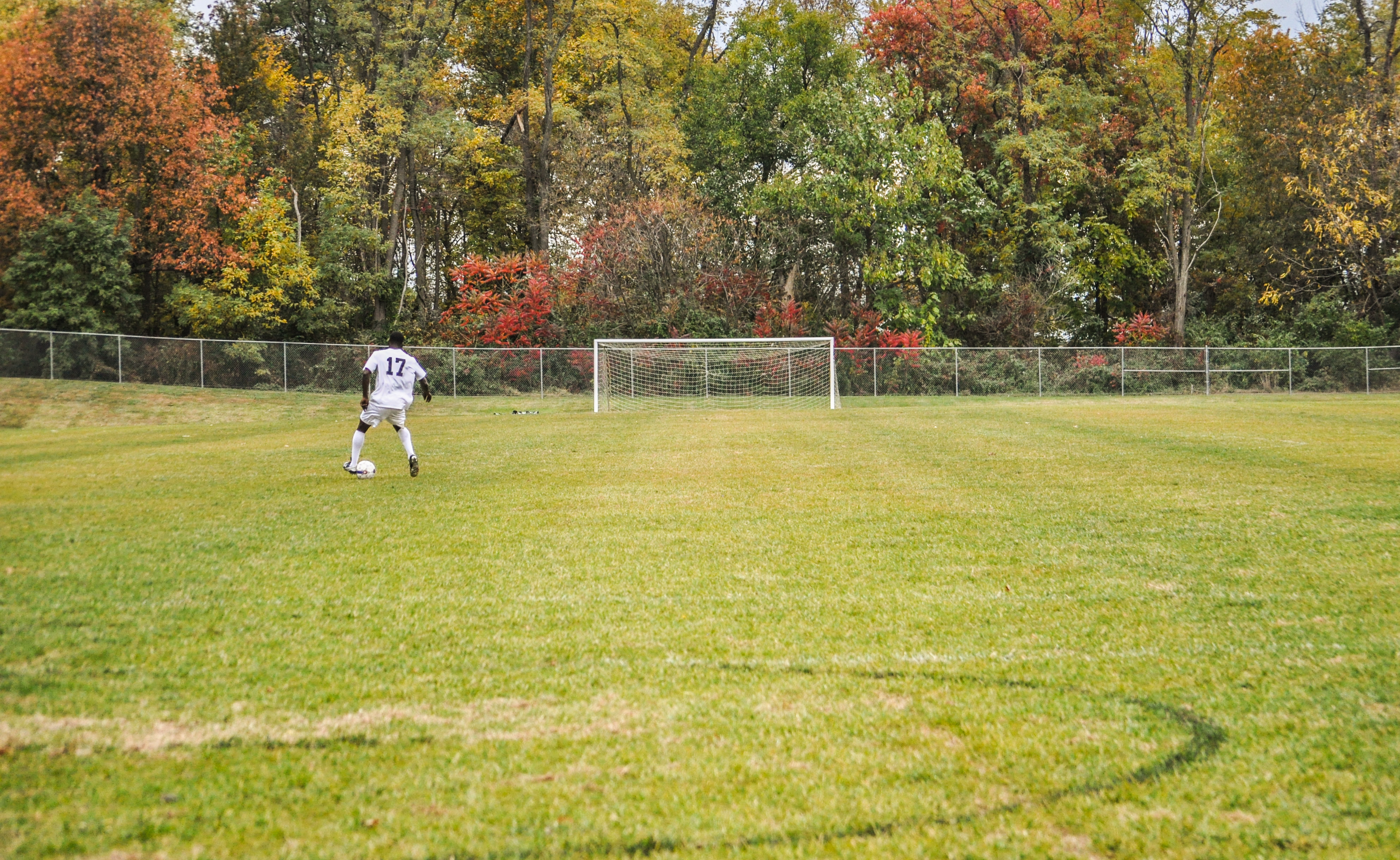
Hassane Souley paused and stared at the trees that fluttered in the wind. He then rattled off reasons, ones we often take for granted, on why he’s thankful.
He clutched his white Frederick logoed jersey in amazement, as if he put it on for the first time, still astonished an erroneous phone call led to accolades.
“I’m a guy who just wants more, but right now, I’m thankful,” Hassane Souley said. “Coming from (Africa), for what I’ve done here. Doing this for the first time in school history with these amazing guys. It’s just going to stay forever. Now, every time I look my head up in the gym, I’ll look my head up and say, ‘we did this.’”
Hassane Souley will choose from a dozen or so colleges interested, ranging from a slew of Division II and Division III schools, to Division I programs like George Mason, Maryland and The University of Maryland Baltimore County.
The seeds planted as a curious child have sprouted from a vision instilled at first love. Hassane Souley says his “ultimate dream” is to play professional soccer, preferably Major League Soccer.
“We’ll see what he does at the next level,” LaRocca said of Hassane Souley’s professional soccer chances. “I’ve just never seen him play 11-on-11 with that caliber of talent. Would I be surprised? Absolutely not.”
If Hassane Souley stays true to his persistent demeanor of doing “whatever it takes to obtain his goals,” as his sister would say, then the journey in America has just begun.
Kyle McFadden is the editor-in-chief of The Commuter and has his own weekly column called K-Fadd’s Cauldron. He also co-owns, manages and reports for Maryland Sports Access, where he covers many beats, including Maryland high school sports, college basketball and college football. He’s also a freelance sports journalist for The Baltimore Sun and The Frederick News-Post, covering colleges and high schools.

